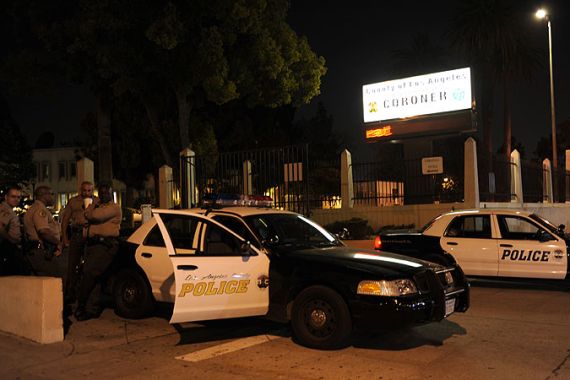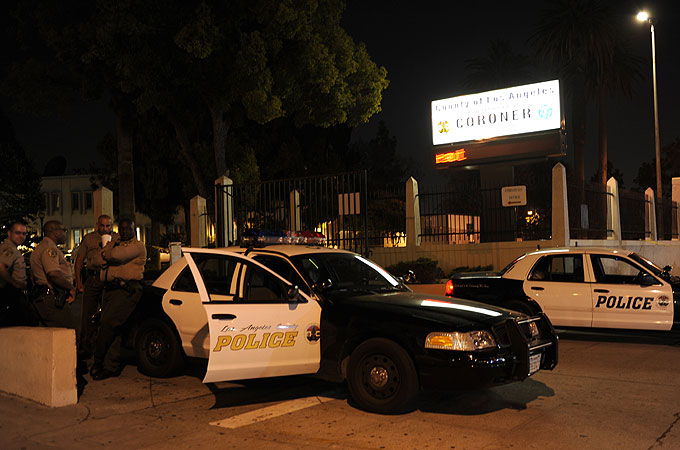US biker cleared of wiretapping
Court rules police on duty cannot ‘”be shielded from public observation” which includes on-the-job communications.

 |
| The judge ruled that police officers on duty have no claim to privacy in public communications [EPA] |
A biker in the US state of Maryland, charged with video-taping a policeman on duty, has been cleared of illegal wiretapping, according to a Washington Post report.
A Hartford County circuit court judge on Monday ruled in favour of Anthony Graber, a staff sergeant in the Maryland Air National Guard.
Grabber, 25, was jailed briefly after he taped using a helmet-mounted camera a Maryland state police who stopped him for speeding in April. He later posted the video on Youtube.
State attorney charged Graber, who is also a computer systems engineer, with violating the state’s wiretapping law. He faced up to 16 years in prison.
Judge Emory Pitt Jr ruled police performing their duties can have no expectation of privacy in public space, which includes on-the-job communications.
“Those of us who are public officials and are entrusted with the power of the state are ultimately accountable to the public,” Pitt wrote.
“When we exercise that power in public fora, we should not expect our actions to be shielded from public observation. ‘Sed quis custodiet ipsos cutodes’ [“Who watches the watchmen?”].”
‘Spycam’
Graber was also charged with possessing a “device primarily useful for the purpose of the surreptitious interception of oral communications”, referring to the video camera on his helmet.
The judge disagreed with the prosecutor that the helmet cam was illegal, and concluded the state’s argument would render illegal “almost every cell phone, Blackberry, and every similar device, not to mention dictation equipment and other types of recording devices”.
Pitt’s decision is the first ruling in Maryland to address the legality of citizens taping police in the course of their duties.
Because it is a circuit court ruling, it is not binding on other judges.
David Rocah, Graber’s lawyer with the American Civil Liberties Union in Maryland, said unless the decision is appealed “it is likely to be the last word” on the matter and to be regarded as precedent by police.
Graber still faces traffic charges stemming from the incident.
The wiretapping law which bans “secret” recording of private conversations is legislated by the state of Maryland, not the US federal government.
Other US states, including Florida, Illinois and Massachusetts, have used similar laws against citizen journalists.